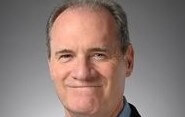 A new paper published by the Federal Reserve Bank of Boston is openly challenging the argument that the 2008 economic crash was fueled by financial services professionals who intentionally misled borrowers and investors.
A new paper published by the Federal Reserve Bank of Boston is openly challenging the argument that the 2008 economic crash was fueled by financial services professionals who intentionally misled borrowers and investors.
The paper – titled ‘Why Did So Many People Make So Many Ex Post Bad Decisions? The Causes of the Foreclosure Crisis’ – offers a 12-point case that the 2008 crash was predicated by ‘borrowers and investors [that] made decisions that were rational and logical given their ex post overly optimistic beliefs about house prices.’ The paper was authored by Christopher L. Foote and Paul S. Willen, senior economists and policy advisers at the Federal Reserve Bank of Boston, and Kristopher S. Gerardi, research economist and assistant policy adviser at the Federal Reserve Bank of Atlanta.
‘Borrowers did get adjustable-rate mortgages, but the resets of those mortgages did not cause the wave of defaults that started the crisis in 2007,’ the report's authors wrote. ‘Indeed, to a first approximation, 'exploding' mortgages played no role in the crisis at all. Arguments that deceit by investment bankers sparked the crisis are also hard to support.
‘Compared to most investments,’ the report continues, ‘mortgage-backed securities were highly transparent, and their issuers willingly provided a great deal of information to potential purchasers. These purchasers could and did use this information to measure the amount of risk in mortgage investments, and their analysis was accurate, even ex post. Mortgage intermediaries retained lots of skin in the game. In fact, it was the losses of these intermediaries – not mortgage outsiders – that nearly brought down the financial system in late 2008.’
The report states that the housing bubble's mania infected both borrowers and investors, due to their belief that house prices would be rising for the foreseeable future. The report also refutes the notion that the securitization industry complicated matters as mortgage-related investments began to turn toxic.
‘In short, higher house-price expectations rationalize the decisions of borrowers, investors and intermediaries – their embrace of high leverage when purchasing homes or funding mortgage investments, their failure to require rigorous documentation of income or assets before making loans and their extension of credit to borrowers with histories of not repaying debt,’ the report says. ‘If this alternative theory is true, then securitization was not a cause of the crisis. Rather, securitization merely facilitated transactions that borrowers and investors wanted to undertake anyway. The bubble theory, therefore, explains the foreclosure crisis as a consequence of distorted beliefs rather than distorted incentives.’
The report also challenges the theory that the housing bubble would have been avoided if stringent regulations were in place during the first part of the previous decade.
‘Neither the facts nor economic theory draw an obvious causal link from underwriting and financial innovation to bubbles,’ the report says. ‘If the inside job story is true, then prevention of a future crisis requires regulations to ensure that intermediaries inform borrowers and investors of relevant facts, and that incentives in the securitization process are properly aligned. But if the problem was some collective self-fulfilling mania, then such regulations will not work. If house prices are widely expected to rise rapidly, then warning borrowers that their future payments will rise will have no effect on their decisions.’
Furthermore, the report questions the belief that mortgage industry executives profited from the crash.
‘Mortgage market insiders were the biggest losers,’ the report continues. ‘Bear Stearns executives were, for instance, heavy investors in the two hedge funds that soured in 2007 with big subprime exposure. In other words, the executives most likely to understand the subprime-lending process had made personal investment decisions that exposed them to subprime risk.’
The full report is available on the Federal Reserve Bank of Boston's website.










